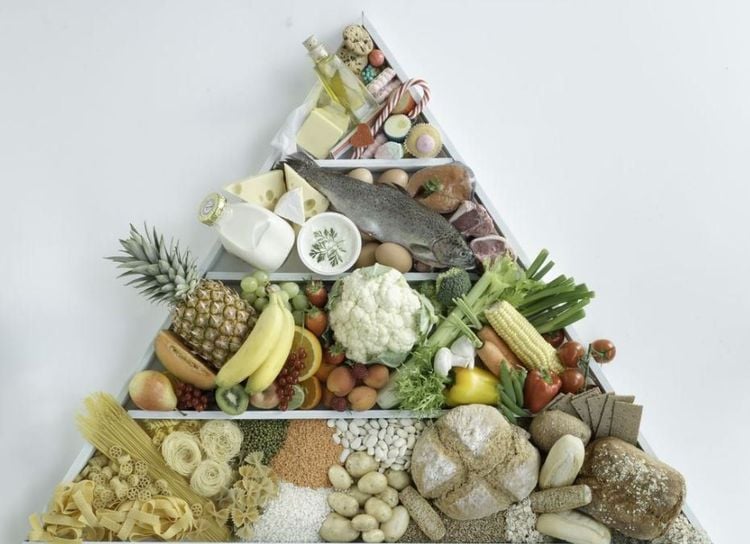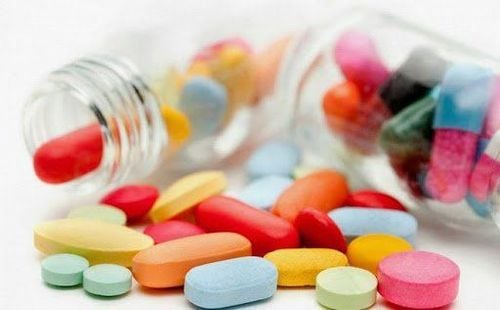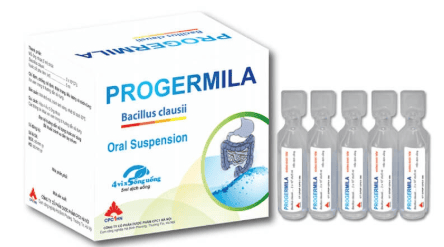This is an automatically translated article.
The article was written by MSc Mai Vien Phuong - Gastrointestinal endoscopist - Department of Medical Examination & Internal Medicine - Vinmec Central Park International General Hospital.Functional Gastrointestinal Disorders (ADHD) is characterized by abdominal symptoms but no organ damage. This symptom can be present in any part of the digestive tract such as: esophagus, gastroduodenal, intestine.
1. Physiological mechanisms involved in functional gastrointestinal disorders
Symptoms of functional dyspepsia are divided into 2 types:
Postprandial discomfort syndrome: Abdominal fullness, bloating when eating quickly. Epigastric pain syndrome: Epigastric burning or epigastric pain unrelated to biliary tract disease. Physiological mechanisms related to gastrointestinal disturbances may be related to:
Gastrointestinal motility disorders: Slower ejection, decreased antrum motility, decreased frequency of migrating motor complexes ( migrating motor complex) mid-digestive period, increasing the period of contractions in the fundus after meals; antrum-basal synergism disorder. Gastrointestinal sensitization: Dietary and environmental factors: Symptoms increase after high-fat meals, after treatment with non-steroidal anti-inflammatory drugs (NSAIDS), after Helicobacter pylori infection, after gastritis - acute intestine. In addition, functional digestive disorders may be related to some of the following factors:
Due to contaminated, contaminated food: Consumption of food of unknown origin, contaminated food, contaminated food Poisoning is a common cause of acute digestive disorders, that is, after suffering and being treated, the digestive system returns to its original state. After such episodes of acute gastroenteritis, functional gastrointestinal disturbances can often result. Due to eating habits: Children or the elderly, even adults, if they eat too many meals, each time they eat too full, eat too much fat, protein or starch, while eating less vegetables. As a result, it will be very easy to have digestive disorders. Causes of antibiotic use: Digestive disorders can also be caused by overuse of antibiotics or arbitrary and abusive use of antibiotics, which upsets the balance of intestinal bacteria. Antibiotics can also cause diarrhea as a side effect, especially in young children. In some cases, prolonged high-dose antibiotic use can cause a more severe form of diarrhea called pseudomembranous colitis. Therefore, do not arbitrarily take antibiotics without a prescription or prescription from a doctor. Due to drinking a lot of alcohol and beer: When drinking too much alcohol, the amount of alcohol in wine and beer increases the ability of the stomach to contract, gastric acid is also secreted more, causing an imbalance in the microbiological ecosystem. intestinal birth. Leads to abdominal distension, bloating, nausea, vomiting, even inability to eat, bowel disorders the next day.

2. Treatment of functional digestive disorders
The doctor needs to clearly explain to the patient. Patients should avoid alcohol, coffee, tobacco because substances reduce the tone of the lower esophageal sphincter. Fatty foods slow down the total thrust of the stomach and are prone to reflux esophagitis. Avoid weight gain, avoid obesity because it increases pressure on the lower esophageal sphincter. Do not take aspirin, non-steroidal anti-inflammatory drugs (NSAIDS), sedatives. Do not eat spicy, sour, eat slowly, chew thoroughly, eat the main meal 3 hours before going to bed, lying with your head high. Those who have not been diagnosed with the disease can be treated by using drugs as prescribed by the doctor/pharmacist.
3. Prevention of functional digestive disorders
To help the digestive system stabilize and balance, prevent functional digestive disorders. We need to eat cooked food, drink boiling water, avoid eating foods that have been left for many hours or left overnight without being carefully preserved, and limit eating processed foods on the street, unsafe places. food safety. Food for daily use should have a clear origin, choose to buy fresh food with natural colors, should not buy foods with too different colors (green vegetables, too dark meat, etc.). ..). Build a moderate diet, do not eat too many meals, be too full, eat a lot of green vegetables and fruits, avoid alcohol abuse and other stimulants. Drinking enough water and maintaining a daily exercise regimen is also a good way for us to have a healthy digestive system.

4. Digestive disorders should eat what?
When suffering from digestive disorders, patients need to review their diet, refer to and use foods that are good for the digestive system to reduce unpleasant symptoms caused by the disease.
4.1 Banana Bananas contain a lot of potassium, vitamins and minerals that are good for the digestive system, and at the same time provide electrolytes for the body, in case of diarrhea due to electrolyte disorders. Bananas also contain a lot of fiber to help bowel movements work well, preventing constipation and bloating.
Should only eat 2 bananas in a day, do not eat bananas when hungry, preferably 1-2 hours after the main meal will promote the effect of promoting the digestive system to work.
4.2 Sweet potatoes Sweet potatoes are one of the foods that are good for the digestive system with a high content of vitamins, minerals, fiber and carbohydrates, capable of curing stomach and duodenal ulcers.
Sweet potatoes should only be steamed and boiled, not fried in oil because then the digestive enzymes will be broken down and become indigestible. Only eat 1-2 sweet potatoes a day.
4.3 Avocados are rich in fiber, vitamins, and monounsaturated fats that help promote a healthy digestive system, maintain optimal functions of the digestive tract as well as the gallbladder, pancreas and liver. According to nutritionists, half an avocado a day is enough.
4.4 Papaya Papaya contains high nutritional content, vitamins A, C, fiber and trace elements such as potassium, folate to help protect intestinal health and promote regular excretion. However, you should not eat ripe papaya every day, when you have diarrhea, you should only eat 3 times a week.
4.5 Apple Apples contain soluble and insoluble fiber, rich in vitamins and minerals that help maintain the normal functioning of the digestive system, reducing constipation. You will get many health benefits when you eat apples 3-5 times in a week, no more than one at a time.

4.7 Yogurt Yogurt contains probiotics and a large amount of beneficial bacteria that help strengthen the immune system, stimulate the digestive system to work smoothly. Yogurt also helps treat constipation and limit the risk of diarrhea and indigestion quite effectively.
For healthy people, every day should only eat 100 - 250g is reasonable, eating yogurt is best in the evening or 1 to 2 hours after lunch, should not eat on an empty stomach, which can cause gastric acid to increase too much. levels, affecting the stomach.
In addition, when suffering from digestive disorders, we need to fully replenish water during the day (2 - 3 liters) to prevent dehydration when diarrhea and soften stools in case of constipation and can drink more:
Drink ginger tea to soothe the feeling of bloating, indigestion. Drink Oresol when having digestive disorders causing diarrhea to supply water and electrolytes to the body. Carrot juice, add a few sprigs of mint to help calm the stomach churning. Coconut water is rich in potassium and minerals, which regulate electrolytes and replenish the amount of water lost in the body when going out a lot. However, drinking too much coconut water or eating coconut rice can cause flatulence and bloating. In addition, when suffering from digestive disorders, in addition to paying attention to the use of foods that are good for the digestive system, the patient should avoid foods containing a lot of fat, cakes, fried foods through grease, should not be eaten. Drink carbonated soft drinks, coffee, especially alcohol.
Vinmec International General Hospital is a prestigious address trusted by many patients in performing diagnostic techniques for digestive disorders, treating H.Pylori with high success rate...Along with At that time, at Vinmec Hospital, gastric cancer screening was done through gastroscopy with Olympus CV 190 endoscope, with NBI (Narrow Banding Imaging) function giving results. The imaging results of mucosal pathology analysis are clearer than conventional endoscopy, detecting digestive diseases, atrophic gastritis lesions, intestinal metaplasia, low-grade gastric dysplasia, and low-grade gastric dysplasia. high altitude, early stage gastric and colon cancer lesions. Vinmec Hospital with modern facilities and equipment and a team of experienced experts who are always dedicated in medical examination and treatment, customers can rest assured with gastroscopy and esophagoscopy services at Vinmec Hospital. Hospital.
For detailed information, please contact the hospitals and clinics of Vinmec health system nationwide.
Please dial HOTLINE for more information or register for an appointment HERE. Download MyVinmec app to make appointments faster and to manage your bookings easily.
SEE MORE
Overcoming long-term digestive disorders in children Why do old people have digestive disorders? Typical digestive disorders symptoms













